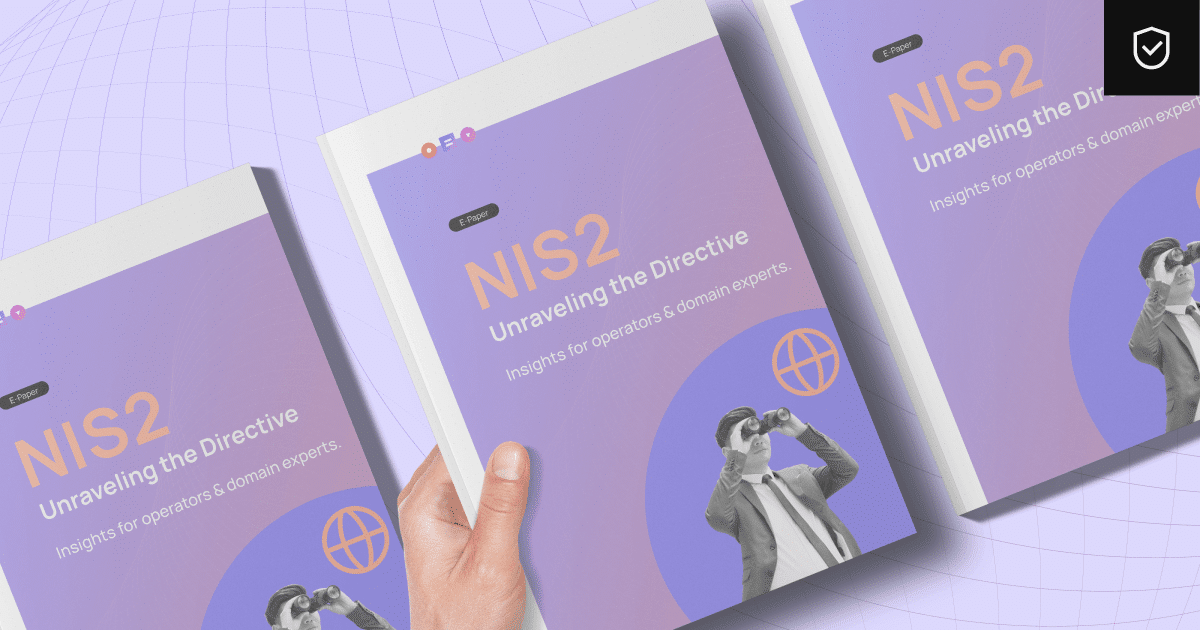
It’s all about domains… Kelly Hardy

Decipher the codes of the domain industry as this domain visionary shares her insider insights. Buckle up for a captivating conversation—right here, right now!
Published by

Simone Catania
Date
The domain industry has a long development history and is a complex and multi-faceted sector, filled with diverse roles, responsibilities and nuances. It is an industry that demands versatility, adaptability and a broad set of skills. Navigating seamlessly across its varied sectors is no ordinary feat. One professional has consistently demonstrated exactly this ability, shifting between numerous positions in her career and showcasing her remarkable eclectic aptitude. Meet Kelly Hardy.
During her remarkable journey in the domain industry and internet infrastructure, Kelly has built a formidable career. With her expertise in international business development, channel management, policy and marketing/PR strategy, Kelly Hardy has left an imprint in the domain industry. She has woven success stories for a robust roster of well-known organizations, including Domain.ME, Afilias, Blacknight and NamesCon, thereby forging a stellar reputation. Alongside her consulting work, Kelly has been a recurring figure on conference stages, moderating discussions, delivering powerful speeches and spreading her profound knowledge to transform and elevate businesses within the internet ecosystem.
Join us in this talk with Kelly Hardy as she exemplifies the power of adaptability and diverse expertise in the multifaceted domain industry!

1How did your personal and professional experiences shape your path toward the domain industry?
I originally come from the music industry. I’ve co-owned a magazine and a small record label and spent some time working for record companies.
In the early 2000s, I was involved with a firm specializing in brand protection and started working with the ICANN community, a step that would pivot my professional life in an exciting new direction. My interest in the domain industry grew unexpectedly and as my work thrived, I delved deeper into this captivating field.
After working a couple of years within the industry, I laid the foundation for my own consulting firm in 2009. It has proven to be a marvelous adventure so far. My clientele is a roster of who’s who in the industry and I’ve had the privilege of working with renowned entities such as .ME, CoCCA, CentralNic and, most recently, iQ as a SVP Strategy and Development.
2As an experienced domain professional, you must have seen many transformations in the industry. What evolution in terms of trends and changes have you seen over the years?
The transformation within the domain name industry was substantial after introducing the new gTLDs. What had been a very static, close-knit niche community was suddenly inundated with fresh perspectives and a diverse array of individuals.
There are some things about the pre-new gTLD industry that I miss a lot. Earlier, the domain industry was less complex, making navigating the available options easier. Stakeholders felt a sense of familiarity with the limited domain offerings, leading to more straightforward decision-making.
But things needed to evolve to foster a diverse and inclusive environment. Demographics needed to change. Nowadays, it is a more diverse industry than it was ten years ago. It was essential to break the homogeneity of the industry demographics and embrace stakeholders from various backgrounds, ethnicities and genders, which has since been achieved to an extent.
As good stewards of the internet, our responsibility extends beyond maintaining the status quo. Change is important. As a global platform, the internet continuously witnesses a broad range of alterations like technological upgrades and evolving legal landscapes, like GDPR and the NIS2 Directive.

3The domain name industry, similar to other sectors, is subject to a dynamic policy environment. How do you navigate policy changes?
I’ve been engaged in policy assistance and consultation for nearly two decades. This vast experience has influenced my professional role in adapting to the shifting regulatory landscape.
My job mainly entailed interpreting legislation and related information provided by ICANN. Also, it included the critical task of developing policy and crafting necessary agreements based on these guidelines.
However, my job responsibilities have substantially evolved with the increasingly interconnected and complex global economy. Nowadays, I am more involved in guiding our clients in preparing and adapting their business operations to comply with new international regulations and legislations. Recently, one of the key focal areas of my work has been tackling the issue of DNS abuse. Understanding and mitigating DNS abuse has become crucial in this rampant cyberattack era. Taking conclusive actions against such violations signifies regulatory compliance and is considered a best practice.
My experience and striving to prevail against ever-evolving challenges have enabled me to effectively assist, advise, and guide organizations through their legal and technical endeavors. This way, I help them navigate their policy-related concerns, preparing them to face an ever-changing digital landscape head-on.
4In recent years, the domain industry has experienced a surge in growth and innovation driven by various emerging technologies. What role does technological advancement play?
By its nature, the domain industry can often exhibit skepticism toward accepting or incorporating new technologies. While this reservation might seem prudent to maintain stability and tried-and-true processes, it could impede productivity growth and innovation. Therefore, our sector must adapt and integrate new, promising technology to stay relevant, innovative, and prepared.
My work at iQ nowadays involves cybersecurity services and business intelligence insights. In line with consistently delivering secure and smart solutions, our team has been leveraging recent advancements in AI to bolster our capabilities. Our primary focus has been enhancing detection and mitigation methodologies related to domain abuse and various online harms.
Failure to do so might lead us to a future where we could find ourselves ill-prepared against evolving threats or challenges in cyberspace that could have been warded off if only we had welcomed and harnessed the potential of emergent technology earlier in the timeline.
5What is a particularly challenging project you’ve worked on and how did you handle it?
A few years back, we faced a complex, high-profile content abuse takedown project. Thinking outside the box and adapting to challenges was essential to finding practical solutions. As it’s not our area of expertise, our industry often avoids making content-related decisions. However, sometimes, a TLD hosts harmful content, making intervention necessary.
This demanding project, beginning as a moral debate over terms of use violation, eventually became a more significant issue than initially expected, spanning several months. Luckily, I had the support of an exceptional team that demonstrated the importance of teamwork and collaboration in such complex situations.
The domain industry should focus on combating abuse at all levels: server, content and domain. To achieve this, it’s vital to understand the need for employees to think outside the box and embrace team play. These factors contribute to a more practical approach to tackling abuse, impacting the industry positively.
It cannot be overstated how crucial it is for companies to combat abuse actively. This approach benefits both their reputation and their employees’ morale. By fighting abuse, businesses showcase their commitment to ethical practices, attracting customers and gaining employee loyalty. These measures help shape a secure, inclusive environment that enhances productivity and job satisfaction.
6What are the key competencies and technical skills to succeed as a registrar or TLD registry?
I could talk about this all day, but here are four essential components to keep it short.
-> Flexibility: The domain world is constantly changing. Hence, it is integral to remain adaptable in response to these fluctuations. Sometimes, your TLD’s perceived use or target audience differs from what your customer base seeks. Being flexible and open-minded towards these changes can pave the way for better business success.
-> Effective communication: As a registrar or TLD registry, you are a custodian of the internet’s infrastructure. It’s crucial to communicate this value to your customers effectively. In essence, you are “selling air” — domain names, hosting and security are intangible yet vital parts of the internet. If you can’t articulate the significance of these services to your customers or spark their interest in them, it could become a stumbling block in your path to success.
-> Market awareness: Knowledge about the market you’re serving and customer needs is vital to running a successful business. A keen market awareness helps you understand your customers’ changing needs and adapt your business strategy accordingly.
-> Customer-oriented thinking: Lastly, keeping your customers at the forefront of your decision-making process is crucial. This involves listening carefully to your customer’s needs, even if they differ from your initial business plan. Successfully meeting their demands and riding the wave of changes will lead to a more successful and credible registrar or TLD registry business.
7How might the domain industry’s future adapt to the digital landscape’s progression and new trends?
The future of the domain industry lies in fostering continual innovation and safeguarding its critical infrastructure. It necessitates embracing new technologies like AI for domain management and maintaining a secure, accessible internet environment. Shaping the industry’s future involves understanding users’ ever-changing needs and technological trends, ensuring its relevance and value. As the digital landscape evolves with developments like 5G and IoT, the domain industry must adapt accordingly, guaranteeing a safe, privacy-respecting online space for current and future users. It’s all about being future-forward yet user-centric!






